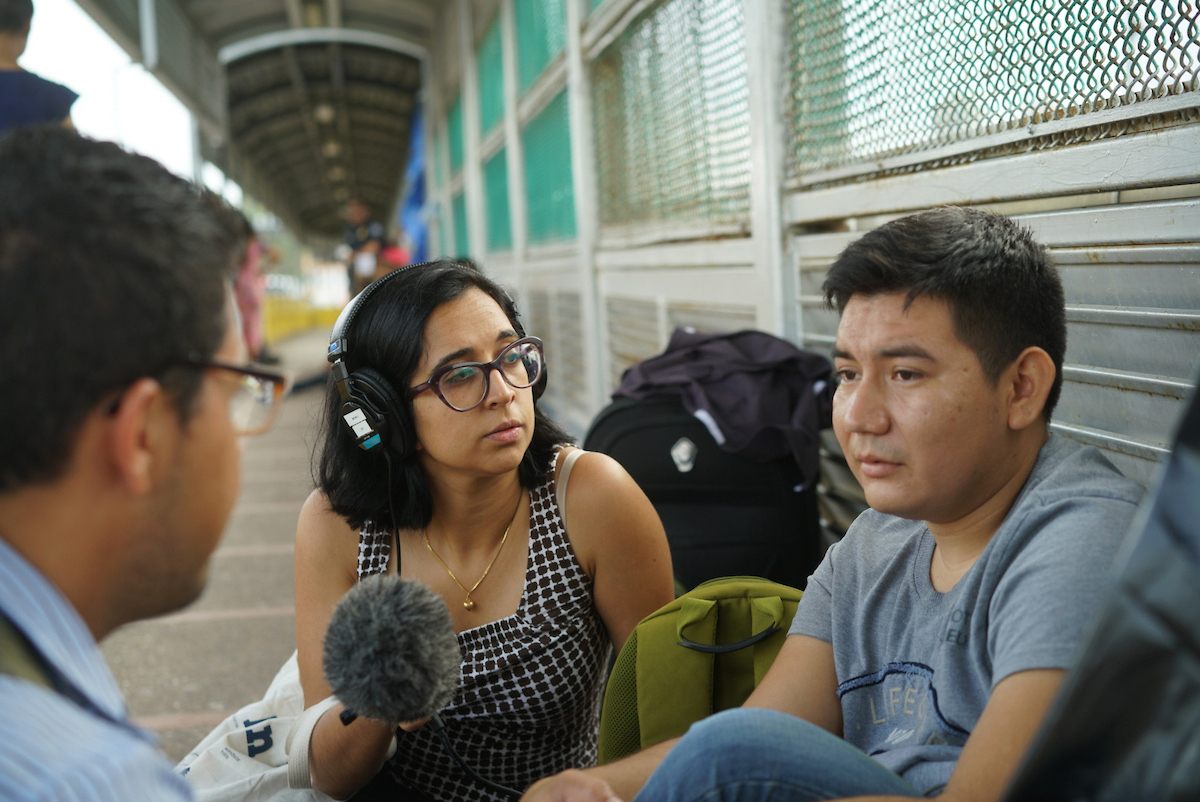
Bringing research up to speed with the challenges of the digital era
On July 22, 2019, Knight made a $50 million investment to develop a new field of research around technology’s impact on democracy, including a $5 million investment to the University of North Carolina at Chapel Hill (UNC) to create the Center for Information, Technology, and Public Life. Zeynep Tufekçi of UNC shares details below.
The digital age has certainly brought about many wonders, and with it, great challenges. We carry supercomputers in our pockets that allow us to talk to one another across the globe, but good luck figuring out whether the video that your distant relative just shared on Facebook about a presidential candidate is real or an AI-generated realistic fake.
Even if one knew the answer, and this happened to be a fake video, what does it mean? What should we do?
Is the video being algorithmically amplified because it’s more engaging than a relatively mundane actual video of this candidate? How widespread is it? Is it seen by just a few people or millions? If it is outright fake, should it be allowed on the few platforms that have captured most of our digital public sphere? If it is misinformation, how should it be countered? Would an intervention by a peer of that distant relative be the best method? Or should Facebook add a message to it, pointing out that it’s fake? Would an impersonal fact-check backfire, given the amount of mistrust and polarization that is already sweeping across the globe?
What would a healthy public sphere even look like in the digital age? What would be the institutions that take all these questions into account? Who should make these decisions and how?
The truth is, we often don’t know. The questions are many; however, despite significant public interest and concern about these questions, research is lagging far behind the scale and scope of the challenge. This is partly because it all happened so fast and partly because it takes time and resources to study such complex problems, especially if they are on such a fast-shifting terrain as the evolving digital public sphere.
After all, Facebook is only 15 years old, YouTube is 14 and Twitter is 13— just barely a teenager.
If our world has changed so drastically in such a short period of time, what questions will the next decade bring?
Academics have emerged as a significant constituency with the expertise and the independence to tackle these questions and to provide empirically grounded, historically informed studies, suggestions and analyses. It’s not a coincidence that some of the earliest and deepest warnings about the downsides of some of the features of this historic transformation came from the academy. But it hasn’t been easy either to be heard or to carry out the scale of the research required, as one key hurdle has been meagerness of resources available to forward-looking interdisciplinary teams.
It’s in this context that I’m thrilled to share that the University of North Carolina at Chapel Hill is among the 11 recipients of the John S. and James L. Knight Foundation’s potentially game-changing $50 million investment in foundational research to better understand how technology is transforming our democracy and the way we receive and engage with information. After all, what good is public interest in this issue if we don’t have a solid framework for asking the right questions and answering them in ways that are both informed and nuanced?
Too often, funding is more readily available for programs or efforts that promise to do something, and there is no doubt that this current transition requires a lot of doing on many aspects: from improving platform design to countering misinformation to learning how to operate as a healthy society under these conditions—sometimes even under conditions of external malicious intervention. But we can’t just do things if we don’t know what to try and how to evaluate the outcomes, fine-tune the process, and encourage society-wide conversations about the complexities and trade-offs in our emerging digital public sphere.
Without funding and conducting extensive basic research, we cannot figure our way forward. That’s why this initiative is so crucial and so necessary.
At Carolina, we will use these resources from Knight Foundation, along with contributions from the Hewlett Foundation and the Luminate Group, to start an interdisciplinary center we are naming the Center for Information, Technology, and Public Life, or CITAP. What makes this especially exciting is that we’re not alone in this endeavor.; Knight’s funding supports our colleagues and fellow academics across 11 U.S. institutions to also launch centers or grow existing ones, creating exactly the kind of fertile ecology necessary to take on these challenges at the scale and speed they require.
This effort could not be more timely or more welcome.
Visit here to learn more about the Center for Information, Technology and Public Life, as well as the other U.S. institutions receiving new support from Knight.
Zeynep Tufekci is an associate professor in the School of Information and Library Science at UNC Chapel Hill. You can follow them on Twitter at @zeynep.
Image (top): Credit Daria Shevtsova, via Pexels
-
Journalism / Press Release
-
Journalism / Article
-
-
Communities / Article
-
Learning and Impact / Topic
-
Journalism / Press Release
Recent Content
-
Journalismarticle ·
-
Journalismarticle ·
-
Journalismarticle ·








